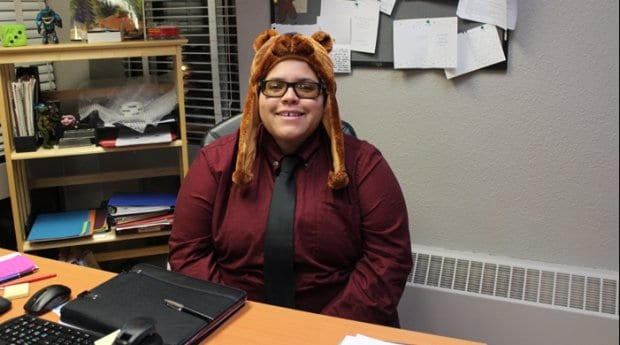Pink Triangle Services (PTS) is preparing for a complete overhaul of its organizational image, including a potential name change, after being awarded $100,000 in professional marketing services from Ottawa-based communications agency Stiff.
PTS, which provides support, education and advocacy services for the local queer community, received the prize as the winner of Stiff’s inaugural Brand Zero competition — an interactive contest with the goal of selecting one worthy Ottawa-area non-profit organization to receive a free package of the firm’s branding, marketing and communication services.
“PTS sometimes feels like a really awesome secret . . . except that we’re not trying to be a secret, just awesome,” says Kayla Miller, the organization’s executive director.
“Social media and attending every community event we’re able to will only go so far. Visibility is key for the success of any organization — you can’t be there for anyone if they don’t know you exist.”
PTS board members will sit down with Stiff staff members for an extensive strategy session later in February.
Stiff CEO James Hanington says most of the rebranding work will be completed at that session, though he notes that the communications agency is already weighing several adjustments to the PTS brand, including a name change to something more inclusive.
The pink triangle image, he notes, has historically applied to gay men, whereas PTS supports and provides programs for a diverse queer community in the greater Ottawa area.
“Instead of creating a brand, we need to help them create an experience where the brand itself can mould and move and be malleable,” Hanington says. “We have to be able to create a fluid environment for people, so when [those accessing PTS services are] in the brand — through digital experience — they can feel like it doesn’t matter how they identify . . . they can put themselves on display.”
He also says that Stiff will be in close contact with the PTS board throughout the rebranding process.
Miller says changing the group’s name is “definitely something that is on the table,” and that it’s a change the board is “open to.”
If the name PTS no longer properly represents what the organization does and where it’s going in the future, she says, “it is important to find a name that does.”
“Evaluating your brand every few years is an important part of the continued evolution of any organization — your organizational brand should reflect the community it serves,” Miller says, adding that the response to the rebranding from the group’s board, its volunteers, community members and partners has been “extremely supportive and enthusiastic.”
Miller claims the programming PTS has offered over the past 30 years has “tried to keep pace with the needs of our community” but its brand “hasn’t kept up in the way we would like it or the way it should.”
The organization, she says, is “so much more than a service provider” and as a result it is important that the “brand speaks to that fact.”
Stiff, which recently completed an image overhaul of its own, has developed branding, marketing and communication strategies for a diverse array of organizations in its nearly 30 years of operation, from burgeoning start-ups to a Fortune 500 firm.
However, Hanington says the company’s newest client may be its most important and challenging one yet.
“Even an inclusive brand like LGBT . . . is simply not going to capture everyone as there is gender fluidity with a lot of people,” Hanington says. “Our job is to brand and identify a group of people, who by their very essence, can not be identified, can not be branded. And that is exciting for us.”
The decision to select PTS, he notes, was a “unanimous” one within Stiff, with the firm believing they can have the most meaningful impact by aiding the LGBT not-for-profit.
“[Stiff felt] we could do the most work and have the most impact by choosing PTS,” Hanington adds. “They have a brand that is no longer in harmony with that work that they are doing. Because of that, we knew we could help the most people by helping PTS.”


 Why you can trust Xtra
Why you can trust Xtra


